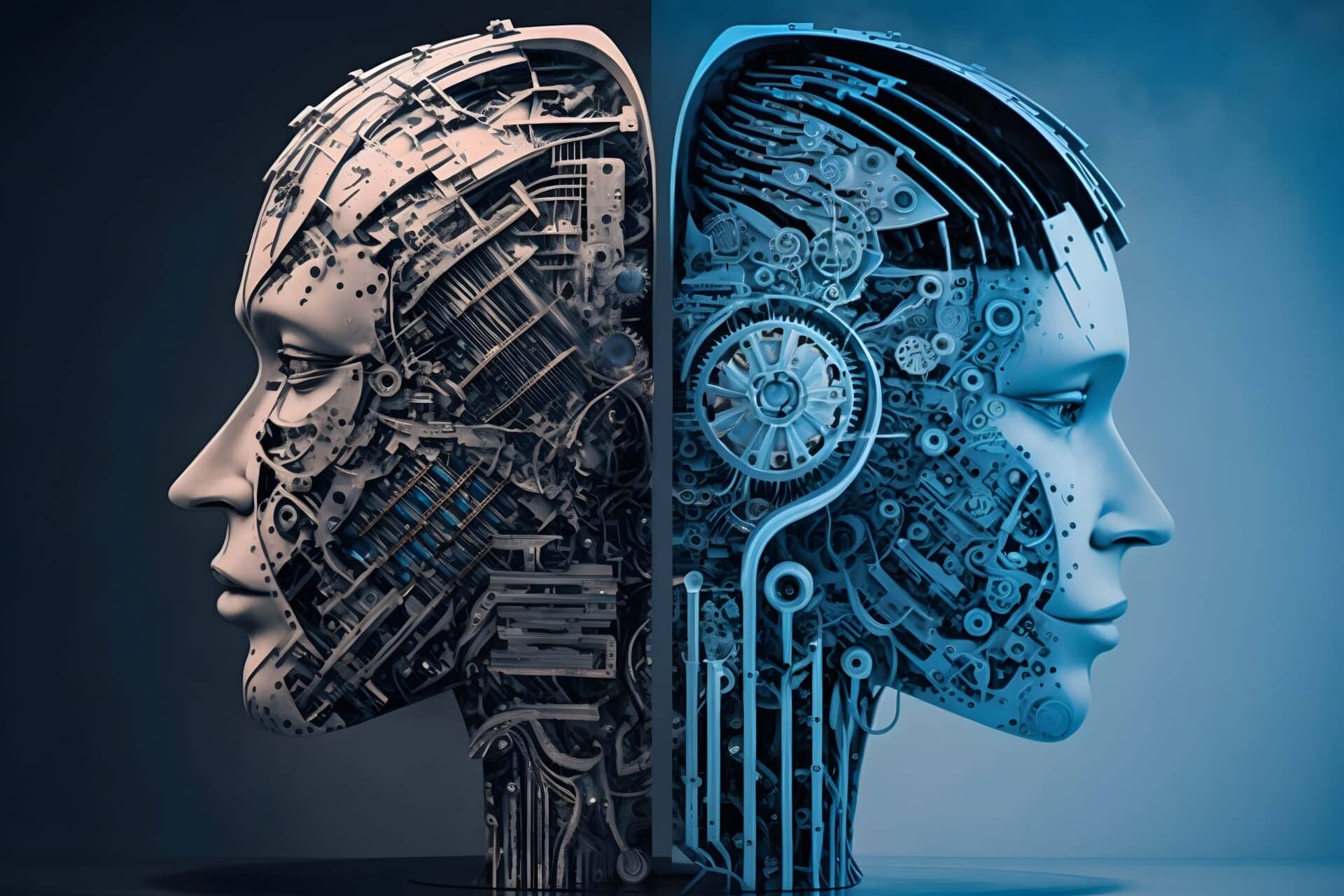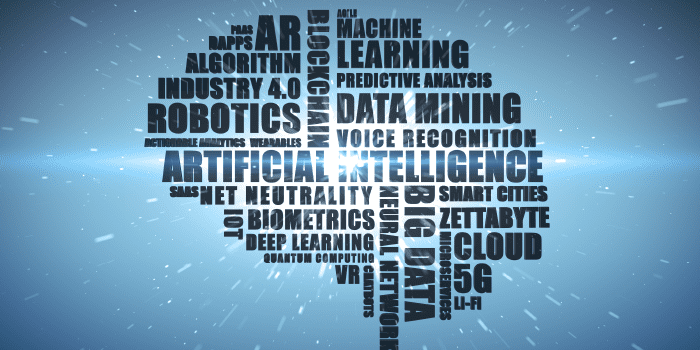Reinvent Your Approach: Engage with the Premier Generative AI Company
Reinvent Your Approach: Engage with the Premier Generative AI Company
Blog Article
From Data to Creative Thinking: Discovering the Impact of Generative AI in the Field of Expert System
With the introduction of generative AI, a brand-new period is emerging, one that checks out the crossway of data and creative thinking. By using the power of generative AI, we can unlock the capability for machines to create creative and initial content. Join us as we check out the remarkable journey from information to creativity, and discover the extensive influence generative AI can have on the future of man-made knowledge.
The Increase of Generative AI
Generative AI has become an innovative area in expert system, transforming the way devices create new material and connect with the world. Recently, there has been a significant rise in the appeal and application of generative AI techniques. These methods enable makers to autonomously develop brand-new and distinct web content, such as photos, songs, and text, without explicit human input.
One of the key factors adding to the rise of generative AI is the availability of big and varied datasets. With the development of the web and the proliferation of electronic content, huge amounts of data are now available to AI systems. This wealth of data offers the needed raw material for training generative AI versions, permitting them to discover and mimic human creativity.

Furthermore, the enhanced computational power and the accessibility of specialized hardware, such as visual handling units (GPUs), have actually played an essential role in the rise of generative AI. These improvements have equipped AI systems to procedure and assess vast quantities of data, allowing them to generate material swiftly and efficiently.
Changing Creative Industries
The growing abilities of generative AI, sustained by improvements in deep discovering algorithms and computational power, have actually resulted in a transformative influence on creative industries. This innovation has actually revolutionized the way innovative specialists function, opening up brand-new opportunities and pushing the limits of human imagination.
Generative AI has made it possible for musicians to check out brand-new worlds of creative thinking by supplying them tools that can generate unique and distinct web content. For example, in the field of aesthetic arts, generative AI algorithms can examine existing art work and produce new pieces based on the style and qualities of the input. This not only conserves time yet likewise increases the creative possibilities, enabling musicians to trying out various styles and techniques.
In the songs market, generative AI has additionally had a significant influence. It can make up brand-new tunes and harmonies, developing songs that was previously unbelievable. This modern technology can even mimic the style of distinguished musicians, allowing the creation of new songs that seem like they were made up by musicians who have actually long died.
Additionally, generative AI has discovered applications in other creative fields, such as style and design. It can generate brand-new clothing layouts, interior designs, and architectural principles, supplying developers with a wealth of ideas and increasing the imaginative procedure.
Nonetheless, while generative AI uses exciting opportunities, it likewise elevates moral concerns and challenges typical notions of authorship and imagination. As this technology continues to develop, it is crucial to strike a balance in between human creativity and the capabilities of AI, making certain that the last outcome reflects the objectives and imaginative vision of the human designer.
Enhancing Human-Computer Partnership
Collaboration between computer systems and people is being enhanced with the assimilation of generative AI, bring about a new era of creative possibilities. With the advancements in artificial knowledge, human beings are now able to function closely with computer systems to attain results that were formerly unthinkable. Generative AI, a subset of AI that concentrates on creating brand-new content, has revolutionized the means humans and computers work together.
Generative AI enables computer systems to create content, such as images, music, and text, based upon patterns and examples given by people. This partnership enables people to leverage the computational power of AI systems to enhance their creative processes. As an example, artists can use click generative AI to create new visual ideas or discover various styles, while musicians can create distinct structures by working together with AI-generated tunes.
In addition, generative AI can help in jobs that call for big amounts of data processing, such as information evaluation and pattern recognition - generative ai company. By integrating AI systems into the collaboration process, people can utilize the computational capabilities of AI to evaluate intricate datasets and extract meaningful understandings
Nevertheless, to make certain effective partnership in between computers and people, it is vital to establish a clear understanding of the roles and responsibilities of each celebration. Human beings should offer the required advice and knowledge, while AI systems can assist in the innovative procedure by generating opportunities and options. This collaboration between computer systems and people opens new methods for development and creative thinking, pressing the limits of what is feasible in various areas.
Ethical Implications of Generative AI
As we delve right into the honest ramifications of generative AI, it becomes apparent that this groundbreaking technology raises substantial problems and factors to consider. Generative AI systems have the capability to produce, generate, and imitate human-like content, such as photos, videos, and text. While this has opened up brand-new opportunities and chances in different areas, it has actually additionally triggered conversations regarding the possible misuse and moral predicaments related to such modern technology.
Among the primary concerns is the potential for deepfakes, which are adjusted or fabricated media that can deceive and misguide people. With generative AI, it comes to be easier for malicious actors to create persuading deepfakes, resulting in misinformation, reputational damages, and also political adjustment. This presents a threat to the trust we place in electronic media and can have far-ranging repercussions for people and cultures.
One more ethical consideration focuses on the concern of intellectual residential or commercial property. Generative AI systems can create original material that may infringe upon copyright laws or increase concerns concerning possession and acknowledgment. Determining the legal rights and obligations in such scenarios becomes an intricate task, especially when AI-generated content is tantamount from human-created web content.
Moreover, generative AI has the possible to perpetuate and magnify existing predispositions and discrimination existing in the training data. If the information used to educate these systems includes prejudiced details, the read more generated material might mirror and continue those biases, resulting in biased or unfair outcomes.
Along with these problems, there is also a need to consider the influence of generative AI on permission, privacy, and safety. AI systems can gather, assess, and use substantial amounts of individual data, leading to prospective violations of personal privacy and concerns about information defense. Furthermore, the permission of people whose information is utilized to educate and enhance these systems should be very carefully resolved to make certain honest techniques.

Future Prospects and Challenges
With developments in generative AI technology, the future holds both promising leads and countless difficulties to get rid of. The possible applications of generative AI are vast and varied. One of site web the most amazing potential customers is the capability to create individualized and sensible material throughout various domain names, such as songs, art, and literary works. This might reinvent imaginative industries by enabling AI systems to create distinct and ingenious jobs. Furthermore, generative AI has the potential to boost human-computer interaction by developing extra intelligent and receptive digital aides and chatbots.

Another obstacle is the need for even more advanced formulas and computational power to boost the high quality and performance of generative AI systems. The present limitations in training time and computational sources prevent the prevalent adoption of generative AI in real-world applications.
Final Thought
Ethical ramifications surrounding generative AI has to be meticulously considered and resolved. Looking in advance, future potential customers and challenges exist in more exploring the capacity of generative AI and locating a balance between creative thinking and honest considerations.
Generative AI has actually emerged as a revolutionary area in artificial knowledge, revolutionizing the method devices create brand-new material and communicate with the world. generative ai company.Generative AI has made it possible for artists to explore brand-new worlds of imagination by using them devices that can create special and unique content. Generative AI, a part of AI that concentrates on creating brand-new content, has revolutionized the way human beings and computer systems team up
Generative AI systems have the ability to produce, produce, and mimic human-like content, such as pictures, video clips, and message. Generative AI systems can create original web content that may infringe upon copyright laws or increase questions about possession and attribution.
Report this page